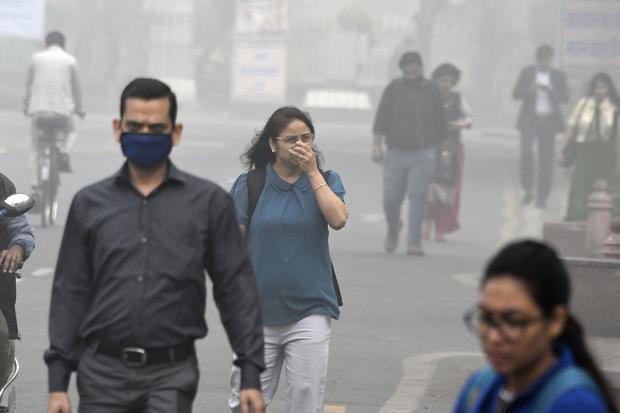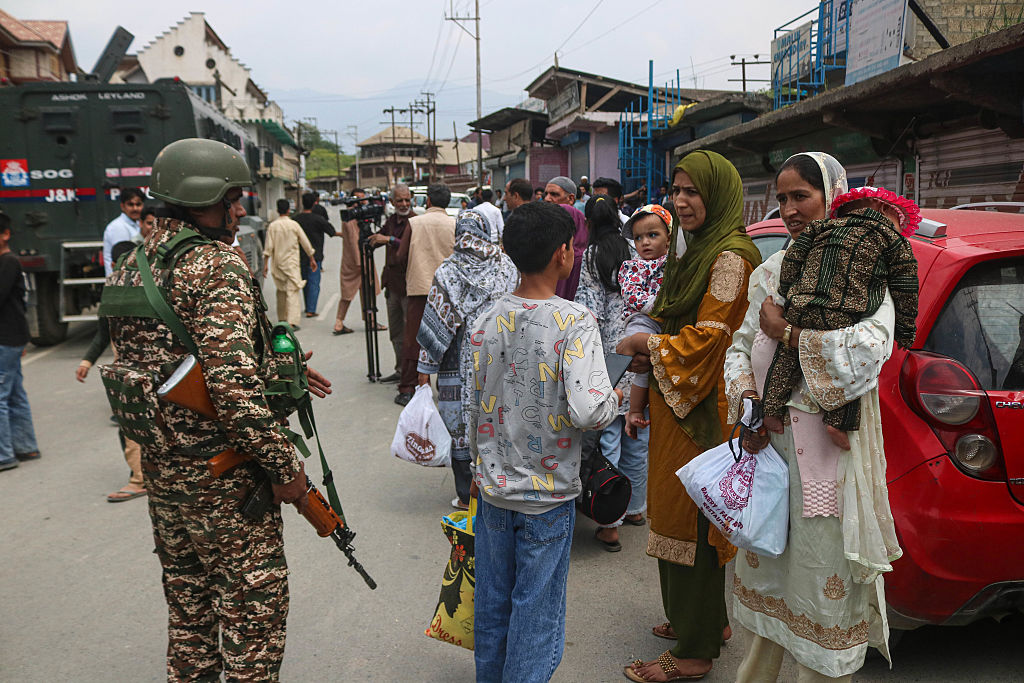Air pollution kills 100,000 Indian children every year, study says
New Delhi -- The noxious air hanging over India's towns and cities kills more than 100,000 children under five every year, a damning study published Wednesday for World Environment Day found. India has repeatedly failed to address environmental concerns. Last year a UN report found 14 of the world's 15 most polluted cities were Indian.
Despite calls to action against pollution around the globe, Indian politicians mostly side-stepped the issue in the last election.
The State of India's Environment (SoE) Report found air pollution is responsible for 12.5 percent of all deaths in the country -- painting a bleak picture of the environmental record of recent Indian governments.
Carried out by the non-profit group Centre for Science and Environment (CSE), based in New Delhi, the report also found that 86 percent of Indian water bodies were "critically polluted."
In April, CBS News correspondent Elizabeth Palmer met patients in the emergency ward of Delhi's National Institute for Tuberculosis and Respiratory Diseases. Every one of them, in one way or another, were victims of Delhi's filthy air. Between 800 and 1,000 people with lung problems line up at the ward every day for treatment.
"We have no non-smokers in India," said Dr. Arvind Kumar, a prominent chest surgeon and founder of the Lung Care Foundation in India. Due to the air pollution in country, "everybody living in India is a smoker," he said.
At its worst, India's air can be 70 times dirtier than what the World Health Organization considers safe.
Slow progress
CBS News' Palmer met some private companies trying to make changes for the better, but the CSE report labelled the government's progress in renewable energy, "dismal."
As of last month India had 280,000 electric vehicles, a fraction of the target of 15-16 million by 2020.
India's Greenhouse gas emissions rose more than 20 percent between 2010 and 2014, while its natural gas and hydroelectric plants were in a "shambles," it continued.
The report found gas-based power plants are running at 24 percent of their capacity, and hydropower projects are running at just 19 percent.
"The country's progress in renewable energy in 2018-19 has also been dismal," the CSE said.
"In wind, the country met only 6.3 per cent of the target this year. In solar, it met 5.86 per cent."
India also recorded a 56 percent rise in the number of industries creating hazardous waste between 2009 and 2016-17, while the number of grossly polluting industries soared 136 percent between 2011 and 2018.
India is projected to add 416 million town and city dwellers to the world's urban population by 2050.
But Prime Minister Narendra Modi, recently re-elected in a campaign in which climate change was barely mentioned, instead tweeted appealing to people to "live in harmony with nature" on World Environment Day.
"We have been brought up in a tradition, where nature is equal to God. Where sanctity of nature is meaningful and where nature's protection has been put at par with humans," Modi said.
"On this Environment Day we all need to spare some time to think what can we do to make our planet clean and green," he said.




